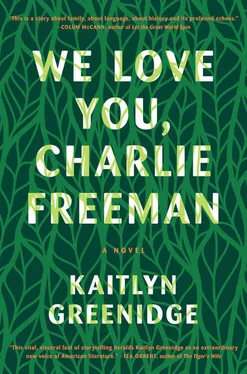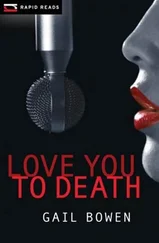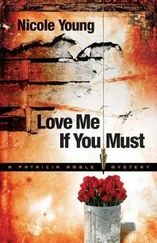Nadine really was the one who should have approached him. She and I both knew that. She was hired up at the Toneybee Institute shortly after Julia Toneybee returned, though nobody knew what exactly Nadine did up there. She claimed she was not allowed to say. Nadine had trained as a nurse with the Red Cross in the Great War, she’d worked with an all-colored battalion, but when she came back home to Spring City she’d had to take in washing because the only hospital around was twenty miles away and didn’t hire colored nurses. Up at the Toneybee, with her mysterious duties, Nadine presumably worked with Dr. Gardner, or saw him more often than I ever would. But it gave her a special kind of satisfaction for her to order me to do it. She was showing her power, now that Mumma was dead and she was the biggest Star of the Morning in Spring City.
I took a moment before I answered, let Nadine squirm. “All right, Sister Saul,” I said. Saul was Nadine’s Star name and she hated it. This is why I did not rise to the same position as my mother. I am too ornery. I have no social graces.
After that, the next time I saw Dr. Gardner walk past my school room, I went to the door and I called after him, “Hello, hello, hello,” to get his attention. Maybe the three hellos were too much.
He turned, very surprised. “Hello?” he called back, just like that, a question. And then he raised his hat to me. When he spoke, I heard his accent. I already knew, from town gossip, that he was English, but his accent was still a surprise. Still, the way he stared at all of us, the way he gazed at our faces before sketching us down, I thought he couldn’t have seen many colored people wherever he came from.
I invited him into the schoolroom and offered him a seat at one of the pupil’s little desks and I sat down at another. He was so tiny, so unassuming, and then again, he was not American and so probably unfamiliar with how to correct the Negro impertinence of giving him the seat of a child.
Looking at him, at his bony knees pressed up against the underside of the wood desk, at his oversized hands with the nails bit down to the faintly bloody bed, he didn’t seem like anyone’s secret lover. That rumor about him and Julia Toneybee-Leroy had to be wrong. How could an heiress fall in love with this wisp, with his thinning hair and dirty shirt collar. Did we honestly believe she would import a population of apes as a noisy cover to allow her to conjugate with Dr. Gardner in peace? Dr. Gardner could never inspire something that florid. I could not imagine him conjugating. He was younger than me, I thought. He couldn’t have been more than thirty. He looked even more virginal than I did.
But when he sat down, I sniffed the chimps on him, first thing. It was the most distinguishable thing about him. Here was this flute of a man in a jacket too big for him, with damp cuffs, wandering around, smelling of something so powerful it could not possibly have come from inside him. It had to be a borrowed scent.
As a Star of the Morning, I have been trained in the art of polite conversation, but I’d pretty much given that up. So I did not bother to coyly draw Dr. Gardner out. I wasn’t afraid of him, either. I said sweetly, “Dr. Gardner, you are annoying my students.”
“Oh. I didn’t mean to.” He drummed his fingers across the desktop and then glanced at me shrewdly. “How, exactly, am I doing that?”
“You follow them through the streets and hang around the school yard, taking their likenesses without their permission.”
He blushed. “They’re just sketches. For my own education.”
“It makes them uneasy.”
“I don’t want to do that.” He slumped in his chair like a scolded child. This was not what I expected, and made me, for just a minute, want to lord it over him. So I pressed. I said again, my voice sweet, “You make the girls self-conscious and you make the boys feel funny.”
“That is not my intention. Please, tell them to pretend I’m not here.”
“But it’s very obvious when you are here, Dr. Gardner.”
“Oh.” He began to nervously peel the skin on his left thumb as if it were an onion.
“Well.” He peeled some more, and the flesh reddened. “Well, what if I ask them to pose for me instead? If it makes them that uncomfortable. What if I arranged a formal drawing session, with your help?”
“Why would you want to do that?”
Dr. Gardner stopped peeling at his thumb. “I am an anthropologist.” He smiled widely. “That means I study people.”
“I know what it means.” I tried very hard to keep my voice light, but I was not successful because he blushed again.
“I’m sorry to presume that you didn’t.”
I sat back a little, surprised that a white person would understand my tone, surprised they would feel it enough to want to apologize. “Well, go on.”
“I am an anthropologist and I enjoy studying all people. The people of Spring City are excellent specimens.”
I kept my face blank.
“By ‘specimens,’ ” Dr. Gardner continued, “I mean they are good examples—”
“I know what ‘specimen’ means as well,” I said, a little darkly.
“If you are familiar with the science of anthropology, you can see why I would want to draw your students.”
“Yes. And I can see why I shouldn’t allow it. I don’t want them ending up somewhere in some study, examples of Negro buffoonery, like you scientists like to do. I won’t have them studied, if that’s what you want to call it.”
As I spoke, I flushed hot at the frankness of my words, but then, I told myself, it wouldn’t matter. I expected Dr. Gardner to pretend not to know what I meant. I assumed he would do was what most white people would do in his position: save themselves the embarrassment and plead ignorance, force me to articulate. But instead, Dr. Gardner shook his head, almost impatiently.
“No. Not like that. Nothing like that at all. I understand your suspicion, but let me make it clear. I don’t have any prejudice toward the Negro people. In fact,”—here his voice rose, nasal and shockingly high, to near breaking—“I love the Negro people. I love them so much that I’ve devoted myself to making a study of them. Of you. Of your life and ways.”
I sat back in my narrow little chair. “You are aware that’s already been done?”
“Yes, by many very stupid men.” He got me to laugh at this, so he pressed on. “They don’t have the appreciation and respect that I do. They study you with some sort of secret agenda, with malice.”
“You’ve never heard of Dr. Du Bois? He studies us with something other than malice. You’ve never seen his work for the Paris Exhibition?”
“Of course, of course. I’m a great admirer. I haven’t seen the Paris studies, though. I’ve only read about them.”
“You should see them.” And then I did something I had not done in a long time, not since my parents died. I voluntarily told someone something about myself. I said, “I was in his original prints.”
Dr. Gardner was very excited by this. “You were?”
“Yes. When I was a girl.”
“Dr. Du Bois took your picture?” And he was so interested, so guileless in that moment, I nodded, very shyly and I told him about how all of Paris saw my picture as an Infant Star, although I didn’t know it then.
Just after our Initiation, a man with a camera, one of those great black boxes, billowing with heavy dark curtains, that’s how long ago it was, he came to Spring City. The man was the exact same color as the weak tea my mother served him in our parlor. He even sounded like a teapot when he spoke: the air whistled in between his front teeth on every third or fourth word. This was in 1898, when I was five. We knew that he was from the Berkshires, too; that he’d grown up just a few towns away. He told us it was his mission to take photographs of all distinguished Negro people across America — the first true record of our race in the brand new century to come. With Mumma’s permission, he had all the little Stars line up in our white dresses and he took our photograph in the field beside the church. And then he picked the three brightest Stars for a “study”—that’s what he called it.
Читать дальше










![Ally Carter - [Gallagher Girls 01] I'd Tell You I Love You But Then I'd Have to Kill You](/books/262179/ally-carter-gallagher-girls-01-i-d-tell-you-i-lo-thumb.webp)

